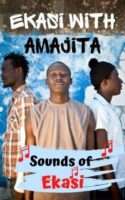Ever since amapiano first broke into our mainstream music scene, the genre has found its way to every ekasi corner and it has even gained traction across the sea as well! Local event organisers know that the event is not lit enough if there is no amapiano DJ on the lineup!
Amapiano songs have that slow dance beat infused with a soulful piano, and blends elements of jazz, which give the popular genre its identity and distinct sound. The first amapiano song I personally fell in love with was Kokota Piano by KayGee DaKing & Bizizi featuring the late Killer Kau in 2019. Kokota means to knock in isiZulu. The hit song was a call to producers to ‘knock’ those piano keys, and it was a notice that amapiano were knocking on the music industry’s door.
Amapiano may have just become popular in the last three-four years but the sound is not entirely new to our ears. And by ‘our’ I mean the people who have been around long enough to know kwaito jams. Amapiano have that modernised kwaito component to them and if you listen to the rhythm carefully, you might find yourself reminiscing about the good early 2000s when kwaito still ruling the streets.
Something extraordinary makes amapiano the most popular genre eMzansi right now. After the inevitable demise of kwaito just before 2010, as South Africans, we felt like we had lost our identity and national pride in kwaito. The only genre that we could call exclusively ours and proudly dance to had vanished like the sun at night. Then just like the rainbow after a storm, amapiano came and saved the day! Amapiano came and reconnected us back to our roots and the sound we thought we had lost in kwaito; amapiano gave it back to us.
It is often said that ‘curiosity a killed cat’ but ekasi DJ’s curiosity created amapiano. The genre was born through our underground DJs just experimenting with new sounds to add something unique to their sets. The sound back then was still called ‘number’ until musical duo MFR Souls came up with the ‘amapiano’ name and popularised it.
MFR Souls may have popularised the genre but another factor that make the genre appeal more ekasi is that people for the people created it! It has given a platform and unearthed talent that may have otherwise been undiscovered. There is no middleman or co-signs and this means that the sound can remain what it is without interference from record label owners. In other genres, we know whom the artists usually give us summer hits but in amapiano you just never know who is going to kokota the next smash song.
In fact, some popular rappers and artists from other genres have jumped ship to join amapiano. Firstly, that is because amapiano pays and secondly artists can stretch their creative muscles without restrictions here. Amapiano is characterised by what producers call a log drum, and Africans have for centuries been one with their drum, which means it is rather a culture that connects us with our roots. That could explain why artists that have been highly successful in their respective genres would leave everything behind and want to be part of this culture.
In most cultures, there are people who are appointed to preserve it and be the guardians of it. You cannot talk about amapiano and not mention the Scorpion Kings: DJ Maphorisa and Kabza de Small. Other hitmakers we have seen in amapiano have come and gone but these are two producers who have been consistently serving us with hits after hits. Maphorisa has produced songs for Drake and other top African artists such as WizKid and Davido, and Kabza de Small is dubbed ‘The King of Amapiano’. If the contacts that Scorpion Kings have been made in Africa and abroad are anything to go by, then it’s really not a brainer that amapiano are gaining a footing globally!
Amapiano were born in the soil of the streets of eMzansi and as much as certain people have been instrumental in keeping it alive, nobody can claim to own ipiano as it is our culture and belongs to the whole community!
***
Are we a thirsty generation? Read here to learn more.
Tell us: Do you like amapiano? If not, why not?


